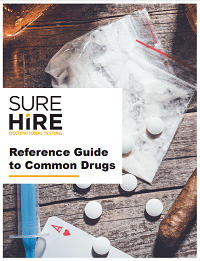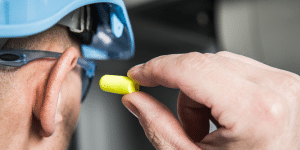TAKEAWAY: Despite the number of people who try, cheating on drug tests is not as easy as it might seem. Most diluted samples still come back positive. Learn more
Jump Ahead
According to the addiction counselling service Detox, roughly 23% of employees admitted to trying to cheat on a drug screening test. Almost 32% of these drug users used detox drinks to avoid getting caught by their employers. Just over 23% reported substituting urine samples, and over 20% diluted the urine sample with water. Another 6% used diuretics.
However, despite the number of people who try, cheating on drug tests is not as easy as it might seem. Most cheaters are caught, and indeed most diluted samples still come back positive, despite the use of diuretics or high concentrations of water in the sample.

Start Testing With SureHire Today!
If you’re looking for a trusted provider to help you navigate the drug and alcohol testing process, contact a member of our team today!
What is a positive dilute drug test, and how does it work?
Dilution refers to the process of reducing the acidic content of a urine specimen by excessive fluid consumption to manipulate a negative result on a drug test. Positive drug tests indicate that a specific drug is present in a specimen. A positive dilute drug test result refers to a urine specimen that tested positive for a particular drug metabolite in the urine where the sample also contained a higher concentration of water than the average human excretion.
There are several reasons for a positive dilute test result. For example, diuretics, also known as “water pills,” induce more frequent urination and can result in a higher-than-normal urine water content. It might also happen if a patient purposely consumes large amounts of fluids, including water, diuretic beverages like coffee or soda, or specific medications to compromise the outcome of a drug test.
Regardless of the reason for the dilution, the positive dilute drug test is still legally considered positive for drug metabolite(s) in the system. A positive dilute result will result in the same actions as a positive test result. A medical review officer (MRO) will be involved, and the laboratory will conduct confirmation testing.
What is the science behind why diluted urine tests come back positive?
Even though a urine sample is diluted, chances are excellent that there will still be enough of a tested drug or its metabolites in the sample to produce a positive result. If a sample is too diluted and the results are negative, the employer may send the employee back for additional testing.
There is a way for laboratories to confirm that a sample is indeed dilute. Of course, a visual inspection can often point to dilution. Urine is generally dark yellow, while diluted urine tends to be opaque or even transparent.
Laboratories will also routinely test samples for both creatinine and specific gravity. Creatinine refers to a waste product produced by your muscles and is a measure of urine concentration. Specific gravity refers to the amount of water in urine compared to other substances and is another measure of concentration. Normal creatinine levels for urine are between 20 and 400 mg/dL, and normal specific gravity is 1.002 and 1.030. Specimens with a creatinine level of more than 2mg/dL or less than 20g/dL and specific gravity of less than 1.001 and 1.003 are considered dilute.
What factors can influence the outcome of a diluted urine test?
Several factors can affect the outcome of a diluted urine test. Since people’s systems vary, the effect of using diuretics, consuming water or even kidney disease on a urine test will also vary widely. Scientists can point to no standard limit on water to avoid dilution.
If the test is deemed a negative-dilute result, then it is very likely that an employer will demand a second test regardless of the reason. However, some employers will accept a doctor’s note indicating a shy bladder requiring the need to consume copious amounts of water to produce a specimen as a reason for a dilute test.
The results of a positive dilute test are equal to any positive test. Drugs are detected, and the consequences are the same.
Can you really beat a drug test?
Despite the proliferation of internet sites and videos claiming fool-proof ways to beat drug tests, cheating on a drug test is actually quite difficult. And even as illicit companies develop new products to help people cheat on drug tests, professional laboratories are developing more sophisticated means of stopping them.
The Myths
Advice on beating a drug test is increasing at an equally stunning rate, but most of it untested and untrue. There are a surprising number of myths about drug testing and occupational testing in general. Here are a few of the more common myths about cheating on a drug test:
Drink plenty of water
Drinking a lot of water before a test might result in a positive dilute but will not produce a negative result. It might make it more challenging to test for substances like THC, but it also warns labs and employers that something is wrong. It will just trigger more tests.
Exercise and fasting
While exercise over time helps rid your body of toxins, it is unlikely to assist you in a drug test. Both workouts and 24-hour pre-test fasting have been debunked as legitimate methods of preventing a drug test from detecting the use of THC or other drugs.
Second-hand smoke
Second-hand smoke is often offered up as an explanation for the detection of THC during a drug test, but this, too, is a myth. Second-hand smoke from a marijuana cigarette is not enough to not elevate levels of THC.
Antibiotics
Some antibiotics, such as Quinolones, can cause opiate levels to spike during a drug test, however, required confirmation tests can rule these antibiotics out as a cause. Again, it won’t work.
The Facts
The chances that cheating on a urine test will result in a negative test are exceptionally unlikely. It is more likely that an attempt to dilute a test, for example, will trigger temperature and creatinine tests and possibly additional confirmation tests. Even if the adulteration or dilution disrupts results from the original test, confirmation testing and validity testing will likely identify the problem. And hair follicle and oral fluid testing can be nearly impossible to cheat. Both, for example, require direct observation during collection. Oral fluid testing results are often immediate, and hair follicles contain remnants of drug use for a long time.
There are three ways that people usually do to try to cheat on a urine drug test. They might try to adulterate their sample by adding a substance after voiding or ingesting that alters their urine and is designed to hide the drugs in their system. They may also attempt to substitute someone else’s clean urine as their own.
SureHire’s Urine Specimen Collection & Dilution Protocols
SureHire utilizes rapid specimen validity tests which are semi-quantitative, colour comparison screens for the detection of creatinine and specific gravity within urine specimens. This assessment is a preliminary screen only and a more specific alternate chemical method must be used in order to obtain a confirmed analytical result at an HHS-certified laboratory.
In the event that a urine specimen is considered dilute at the collection site, the test participant is placed on a Dilution Log and asked to produce additional specimens every 15–20 minutes in an effort to flush the excess water out of their system. The participant is given one (1) hour to provide an acceptable specimen before the test is deemed incomplete and a re-test is required.

You May Also Be Interested In…
- Do You Have Reasonable Suspicion?
 Employers cannot initiate reasonable suspicion testing without first going through the 5-step process. Reasonable suspicion training provides critical information about how to initiate reasonable suspicion testing, including the 5-step process and other tools that employers can use to help manage the misuse of alcohol and drugs in the workplace.
Employers cannot initiate reasonable suspicion testing without first going through the 5-step process. Reasonable suspicion training provides critical information about how to initiate reasonable suspicion testing, including the 5-step process and other tools that employers can use to help manage the misuse of alcohol and drugs in the workplace. - An Employer’s Guide: What You and Your Employees Need to Know About DOT Drug & Alcohol Testing
 When implementing or maintaining DOT Drug & Alcohol testing, there are key areas that employers should consider.
When implementing or maintaining DOT Drug & Alcohol testing, there are key areas that employers should consider. - SureHire Occupational Testing Acquires COHR Health: A Positive Step Towards Safe, Healthy, Productive Workforces and Communities
 We are thrilled to announce that today, May 6, 2024, SureHire Occupational Testing has officially acquired COHR Health, a well-known leader in occupational health services. Read on…
We are thrilled to announce that today, May 6, 2024, SureHire Occupational Testing has officially acquired COHR Health, a well-known leader in occupational health services. Read on… - Occupational Testing Use Case – Mining
 In this case study, we will explore how mining companies can use various types of occupational tests to reduce Total Recordable Incident Rates (TRIR) long term.
In this case study, we will explore how mining companies can use various types of occupational tests to reduce Total Recordable Incident Rates (TRIR) long term. - 9 Strategies to Keep Workers Cool on Drilling Sites During Hot Summer Months
 This article delves into strategies to keep workers cool and safe on drilling sites during the hot summer months.
This article delves into strategies to keep workers cool and safe on drilling sites during the hot summer months. - Hearing Conservation Basics: How to Manage Occupational Noise
 Learn how to proactively mitigate occupational noise risks and help prevent NIHL among workers.
Learn how to proactively mitigate occupational noise risks and help prevent NIHL among workers.

